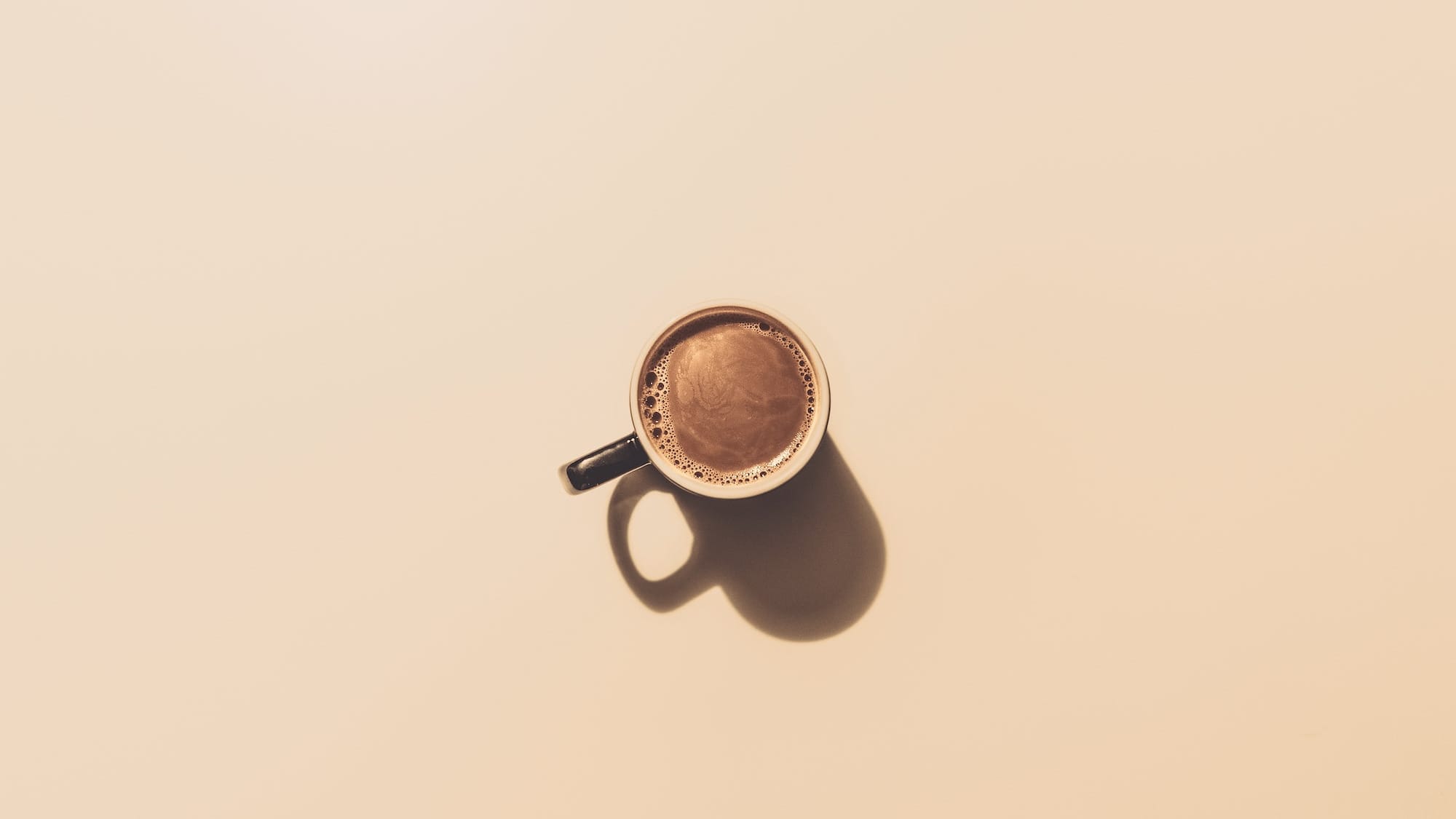The comfort of a pandemic-era coffee
My morning coffee has kept me grounded, but there's more to the experience than a caffeine-fueled buzz.

During the COVID-19 pandemic, I've been fortunate to live in a large city, where, even during the most extreme lockdowns, a handful of local businesses were able to remain open. Primary among them is coffee shops.
There are a few chains nearby, including Starbucks and Pret, but the proliferation in coffee stores has been chiefly among smaller operations in recent years. It's made me immensely grateful that I could continue my coffee routine.
It kept me grounded, so no matter how bizarre or outwardly dreadful things seemed, our everyday experience could retain some element of regularity. I'm not overly attached to many things, but getting an Oat Latte and doing a morning meditation session are the routines I've used to make my experience of chronic illness that much easier in recent times.
But the coffee is more than that. I could easily make myself a cup at home (and I frequently do) but having "something to do" when heading out the house makes the walk we would likely have taken anyway feel more productive.
Not that it needs to be, but it's part of the connection to the before times when everyone was busy with something to do. I've been mostly absent from that version of the world for a long time, but to pretend it still existed made the pandemic easier to deal with.
The sense of purpose gives each day stability that could quickly have been lost, especially after we began a 9-5 working pattern (realistically, 9ish until 6ish). It's a reason to get up, get ready, and spend time outdoors.
Across the months, we've rotated local coffee shops. During the first lockdown, an independent cafe we were really fond of stayed open for takeaways, so it felt right to support them when they had no other business.
Through the summer, as more people returned to socialising outdoors, we opted for a quieter lunchtime walk and settled on a small Italian coffee shop, where there was the added perk of fresh pastries and baked goods.
Then, as summer gave way to winter and a vast spike in cases, we looked for somewhere we didn't need to enter and adjusted our walk accordingly. Our current regular haunt is based in a corner store.
Unlike some businesses, the company made an effort to adjust to the pandemic, replacing the floor-to-ceiling windows with sliding doors. The staff remain indoors while a table separates them from patrons outside.
The upside to this setup also means you can take reusable cups as you place them on the table, and the baristas can make your coffee without having to touch them; safer for everyone.
While this morning ritual has helped me deal with the overwhelming burden of the pandemic, it has an impact on others. During all lockdowns, the staff at each of these locations needed to commute to work.
I've not even had to deal with public transport yet, but these hard-working store staff had to. Particularly in London, you're not likely to live where you work, even in hospitality.
There's the broader effect, too. An old economics essay, I, Pencil by Leonard Read, details the complex supply chain behind something as seemingly straightforward as a pencil.
These items seem so every day and disposable, but behind everyone is the combined effects of hundreds of workers, from the labourers directly involved in the materials, manufacturing, and distribution to those supporting them.
The same is true of my morning coffee. Besides the physical store where I pick up my hot drink, many people have to put in substantial work. The two primary ingredients, coffee and oat milk, need to be produced.
The coffee beans are grown, often in countries miles away, farmed, processed, and shipped to a roastery. From there, they are packaged, ground, and distributed to larger suppliers or directly to the coffee shops.
To me, it's been a way to create stability in a world that shifted so dramatically and possibly forever. But I'm privileged to have been able to find comfort in that everyday routine.
Behind it, there have been countless people having to continue to work, putting themselves possibly at risk, so that I could have a freshly-made cup of coffee each morning.
Everyone needs their supports, crutches to help them make it through the day, but I'm immensely grateful to everyone who worked and continues to work so hard to make it happen.

